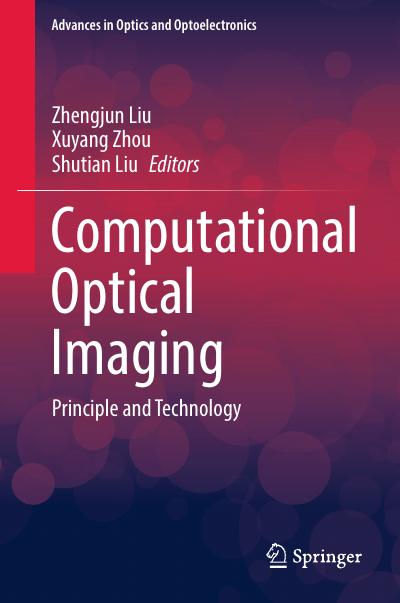
English | 2024 | ISBN: 978-9819714544 | 423 Pages | PDF, EPUB | 73 MB
This book highlights a comprehensive introduction to the principles and calculation methods of computational optical imaging. Integrating optical imaging and computing technology to achieve significant performance improvements, computational optical imaging has become an active research field in optics. It has given rise to the emerging of new concepts such as computational imaging, computational measurement and computational photography. As high-performance image detectors make image measurements discrete and digital, images are mostly recorded in the form of discrete data, almost replacing the continuous medium used for pattern recording. Computational optical imaging technology has become an effective way for people to study microscopic imaging. At present, different imaging systems are composed of continuous optical elements such as lenses and prisms or discrete optical elements such as spatial light modulators or digital micro-mirror devices. The current computing technology has permeated all aspects of imaging systems and gradually promotes the digitization of optical imaging systems. This book summarizes the representative work done in this field and introduces the latest results. Computing technology plays an important bridging role between theories of optics and experimental systems, which inspires more comprehensive and in-depth research. It has the advantages of high repeatability, flexibility, strong computing power and low cost. In this multidisciplinary field, researchers in computer science, optics and information science have joined together to extend its depth and breadth. Targeting cutting-edge issues to be solved in computational optics, this book introduces a variety of methods that involve theoretical innovations and technical breakthroughs in imaging resolution, the field of view, imaging speed, and computing speed. It intends to provide a handy reference and technical support for graduate students, researchers and professionals engaged in the study and practice of computational optical imaging.
HomepageResolve the captcha to access the links!